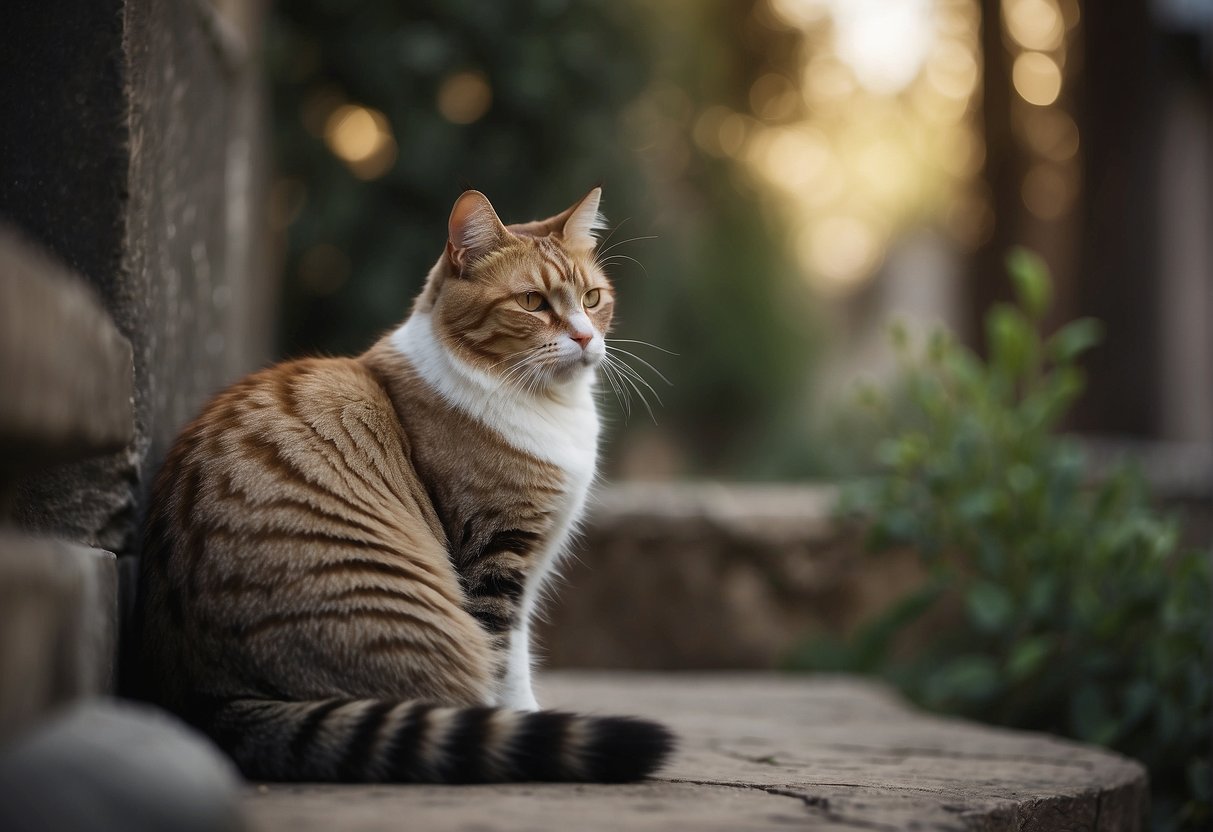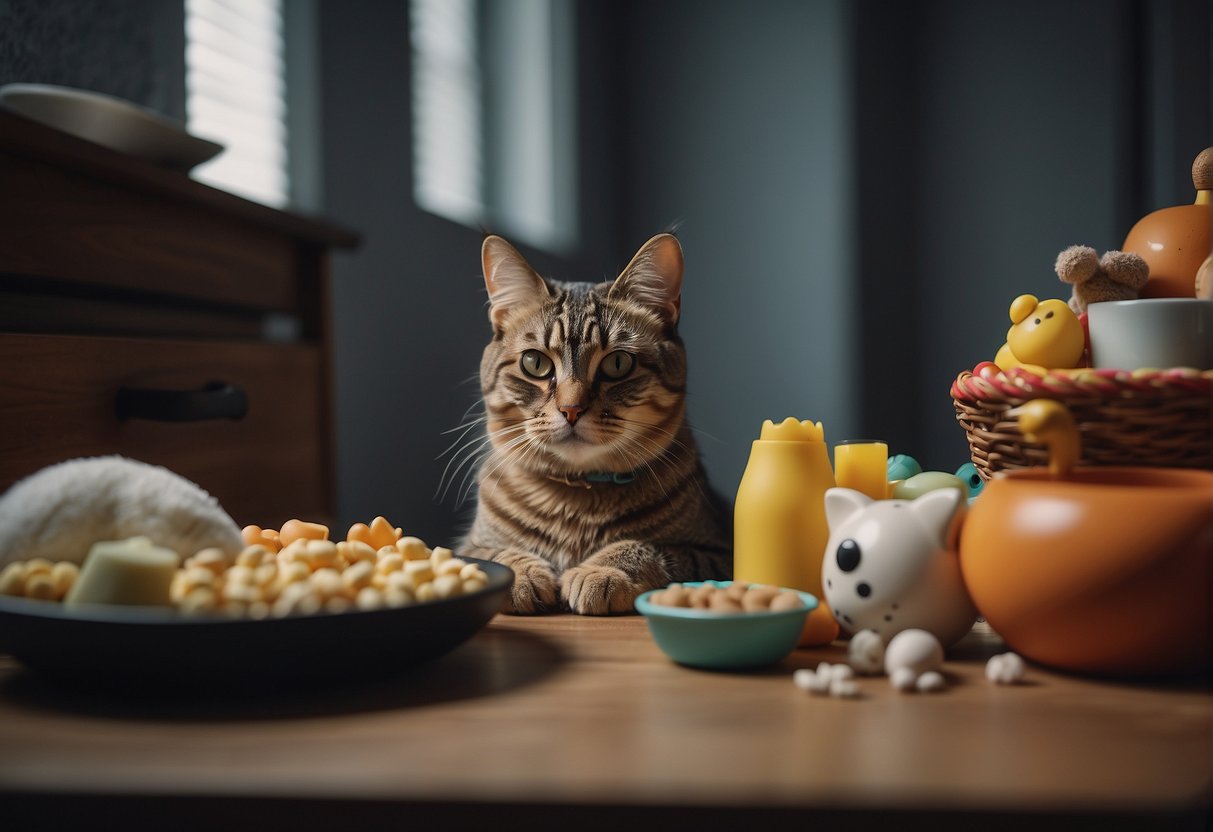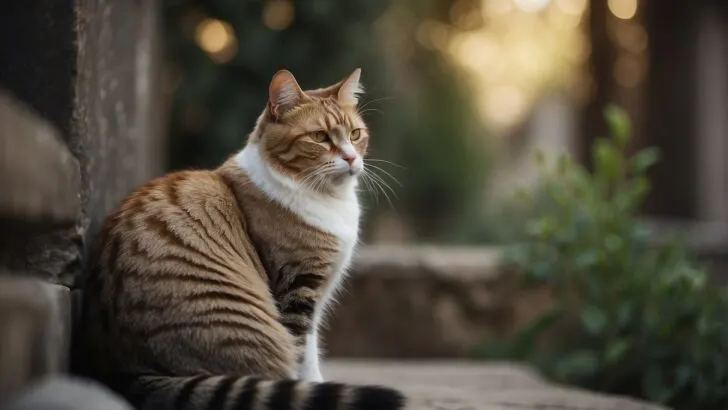Yes, cats can experience grief. Like us, when cats lose a companion or a beloved owner, they may exhibit signs of mourning. You might notice, for example, that a cat becomes more withdrawn, changes its vocalization patterns, or shows less interest in food and play following a loss.
They express their emotions differently than humans do, but the signs of grief are there—your cat might seek out the scent of their lost friend or wait by the window for their return.

Cats, just like humans, thrive on routine and familiarity, so a disruption like losing a close companion—feline or human—can certainly impact their emotional state. It’s not just about affection; it’s about a change in their environment and daily interactions, which can lead to signs of grief.
Your understanding and support can help a grieving cat. Maintaining their usual schedule and offering extra comfort and attention can provide a semblance of normalcy. While each cat’s response to loss is unique, common behaviors could include searching for the deceased, extra clinginess, or even ignoring you. Recognizing these behaviors as potential grief can help you provide the appropriate care and patience as your furry friend adjusts to their altered world.
Dealing With Cat Grief

When your feline friend seems different after a loss, they could be experiencing grief. Recognizing the signs and understanding the emotional turmoil they may be facing is crucial for providing the support they need.
Signs of Grieving in Cats
Cats can exhibit various behavioral changes when grieving. These may include:
- Decreased Appetite: Your cat might eat less or show disinterest in food.
- Withdrawn Behavior: Seeking solitude more than usual could be a sign your cat is coping with loss.
- Sleep Pattern Changes: Sleeping more or less can both be indicators of grief.
Increased Vocalization: Some cats may meow more or become quieter.
Stages of Grief
Just like humans, cats may go through stages of grief which are not necessarily linear:
- Denial: Initially, they may seem to search for the deceased playmate or show confusion.
- Depression: A general lack of interest in activities and withdrawn behavior could follow.
- Adjustment: Over time, cats might slowly return to regular behavior as they adjust.
The Science Behind Feline Emotions
Although research on feline bereavement is not as extensive as it is for humans, studies suggest cats do feel complex emotions. They form attachments to their owners and other pets, which means they can genuinely feel the impact of a loss.
Neurological Studies: Science supports that cats have the neurological complexity to experience a range of emotions akin to grief.
Biological Reactions**: Hormonal changes that occur during stress are also present during the grieving process, adding a physiological dimension to their emotional state.
Providing emotional support can help ease their grief journey. Simple actions such as maintaining routine, offering new toys, or giving extra attention can help.
Supporting a Grieving Cat
When your cat is grieving, they need extra support and understanding. It’s crucial to provide comfort and know when professional help from a vet is necessary.
Comforting Your Pet
To comfort your grieving cat, maintain their routine to provide a sense of security. Here’s how you can offer support:
- Maintain routine: Keep feeding times consistent and avoid moving furniture around.
- Quality time: Dedicate more time for cuddles or play, depending on what your cat enjoys.
- Offer affection: Be more affectionate with them during this time, as they may seek reassurance.
Creating a calm environment can also help minimize their distress. Watch their behavior closely for signs of sadness, and respond with gentle compassion.
When to Consult a Vet
If you observe prolonged or severe behavior changes in your grieving cat, consider these steps:
- Behavior Observation: Take note of any significant behavior alterations such as changes in appetite, vocalization, or activity levels.
- Seek Professional Advice:
- If they show signs of depression or their behavior doesn’t improve, consult your vet.
- Discuss the benefits versus risks of medication or therapy for severe cases.
Adjusting to Loss
When your cat faces the loss of a companion, understanding and managing their grief is crucial to their adjustment and return to normalcy.
Helping Cats Overcome Grief
Cats grieve in their own ways and you may notice personality changes as they mourn. They may lose interest in activities, exhibit changes in eating or sleeping patterns, or show a reduced desire for attention. Here’s how you can support them:
- Maintain Routine: Cats thrive on predictability. Try to keep their feeding, play, and cuddle times as regular as possible.
- Extra Attention: Spend more quality time together to show that you’re there for them.
- Create a Supportive Environment: Soft bedding, their favorite toys, and gentle petting can provide comfort.
- Monitor for Signs of Happiness: Any return to their usual activities, such as playing or purring, is a good sign and indicates they are adjusting to the loss.
Introducing New Feline Friends
The notion of getting a new cat to help with the grieving process can be tempting, but it’s essential to ensure your cat has reached a point of acceptance before doing so. Each cat is unique, so consider the following:
- Wait for Readiness: Look for signs that your cat is no longer grieving intensely.
- Consider Their Personality: Some cats prefer being the solo pet, while others may welcome a new friend.
- Slow Introductions: Keep the new cat in a separate area at first, allowing gradual, supervised interactions to gauge compatibility.
Preventing Grief-Related Health Issues
When your cat is grieving, they can experience a range of emotions that may lead to health issues. It’s important to monitor their behavior closely and provide extra care to prevent any long-term complications.
Monitoring Eating and Sleeping Habits
Monitor your cat’s eating habits closely, as a decreased appetite can lead to health problems like hepatic lipidosis, especially in overweight cats. If you notice a significant drop in their food intake, try offering their favorite treats or a different type of food to stimulate their appetite.
Also, keep an eye on their sleep patterns; both increased and decreased sleep can be signs of grief.
- Appetite:
- Normal: 🐾🐾🐾
- Slightly decreased: 🐾🐾
- Significantly decreased: 🐾 (Consult a vet)
- Sleep:
- Normal: 😺😺😺
- More than usual: 😺😺
- Much less: 😺 (Consult a vet)
Recognizing Depression and Anxiety
Cats can become depressed or develop separation anxiety after the loss of a companion. Signs of depression in cats may include a lack of interest in play or interaction, while anxiety might manifest as increased vocalization or aggression.
If you see signs of either, it’s a good time to create a comforting environment and consider engaging them with new toys or a new routine for stimulation.
- Signs of Depression:
- Lack of activity
- Withdrawal from interaction
- Signs of Anxiety:
- Increased meowing or growling
- Sudden aggression
Long-Term Care for Bereaved Cats
Long-term care for a grieving cat involves consistent monitoring and gradual reintroduction of routines. Make sure they have a cozy space and consider consulting your vet about supplements or medications if there is no improvement.
Regular check-ins with the vet can ensure your cat maintains good health while coping with loss.
- Checklist for Long-Term Care:
- Routine vet visits: To track health
- Environmental enrichment: Toys, cat trees, etc.
- Comforting presence: Spend quality time together

My name is James, and welcome to FAQCats!
Along with our team of cat owners, expert pet enthusiasts, and pet professionals, we aim to write engaging helpful, engaging content about cats. At FAQCats we strive to provide content that’s accurate and fun to read. Our team writes about everything related to cats; even the most complex of topics. Through extensive research and caring for our own fur-pals, we’re able to provide something cat owners worldwide will love. Have a look around, and leave us feedback anytime!

